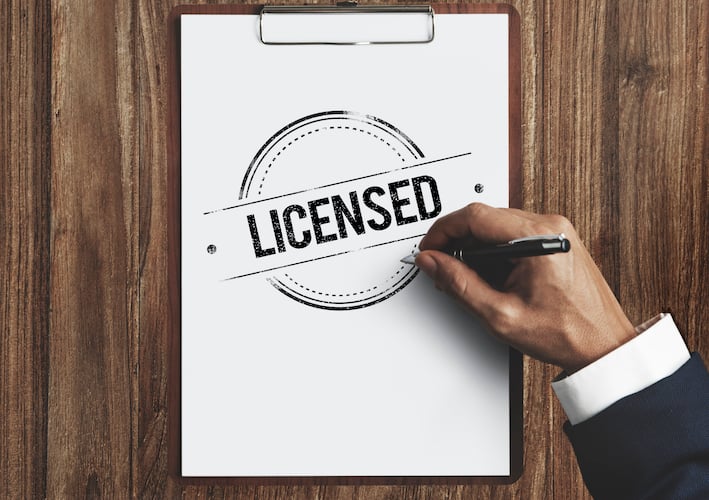
What insurance do I need for my home services business?
Starting a home services business in the United States can be a challenging and exciting task, and one of the most important questions that arises during this process is: "What insurance do I need for my company?" Understanding the types of insurance for home improvement businesses in the US and knowing the insurance requirements for home improvement contractors in the United States can be an overwhelming task, but it is essential to protect your business and comply with local laws.
This article is designed to provide you with a clear insight into this topic, from general contractor insurance to specific insurances such as electrical contractor insurance, cleaning contractor insurance, plumbing contractor insurance, or construction contractor insurance.
Do I need insurance for my business?
If you have a small business, it is important to have at least general liability insurance, and depending on where you are located, you may be required to obtain business insurance, and if you don't, you could face legal problems.
Even if your business presents a low risk and offers quality work, there is always the possibility of accidents. Even hiring the wrong people can bring problems and in some cases, you can be sued even if you are not directly responsible.
That is why it is crucial to take the protection of your business seriously and carefully consider the necessary insurances to cover the risks you face. Maintaining adequate coverage not only protects you from significant financial losses, but it can also enhance your reputation and the trust of your customers.
Do not put your home services business at risk. Discover the essential insurances you need to avoid costly problems and protect your company. Do not let an unforeseen event ruin your success.
Insurances for service businesses in the United States
For any general contractor or homeowner considering opening a business in the United States, certain insurances are essential.
These are general insurances that apply to painting companies, cleaning companies, plumbing companies, electrical companies, handyman companies, contracting companies, gardening companies, roof remodeling companies, floor remodeling companies, etc. Below, we explain what each of them is about.
1. General liability insurance
General liability insurance is essential to protect your business from third-party claims for property damage or personal injury caused by your work. This insurance can cover the costs of legal defense and any awarded compensation, protecting your business from potential significant financial losses.
Who does general liability insurance pay?
General liability insurance pays third parties who may suffer damages or injuries as a result of your business activities. This can include your clients, but also other parties such as pedestrians or nearby property owners.
What does general liability insurance cover?
Bodily injuries: It covers medical costs if someone gets injured at your workplace or due to your work.
Property damage: It covers costs if your work causes damage to someone's property.
Legal costs: If someone sues you for damages or injuries, this insurance can cover the costs of legal defense, as well as settlements or judgments.
What does general liability insurance not cover?
Injuries to your employees: That is covered by workers' compensation insurance.
Damage to your property or equipment: You will need commercial property insurance or equipment insurance for that.
Defective work: Generally, general liability insurance does not cover claims based on the quality of your work. For that, you may need professional liability insurance or errors and omissions insurance.
Intentional damages: Any damages caused intentionally are not covered.
Tip for general liability insurance
It is important to remember that the limits of your general liability policy may not be sufficient to cover all possible claims. In some cases, it may be beneficial to consider an excess or umbrella policy, which provides additional coverage beyond the limits of your general liability policy.
Is general liability insurance mandatory?
While it is not federally required, many states require general contractors to have general liability insurance. Additionally, many clients and projects may also require you to have this type of insurance. Therefore, it is highly recommended even if it is not technically mandatory in your location.
2. Commercial property insurance
This insurance protects the physical assets of your business, such as buildings, equipment, tools, and supplies, against damage or loss due to fires, theft, storms, and other covered risks. Without this coverage, you would have to bear the full cost of replacing or repairing these assets in the event of an incident.
Who does commercial property insurance pay?
Commercial property insurance pays your business directly in case you suffer a loss or damage to your commercial property or equipment.
What does commercial property insurance cover?
Commercial property: It covers the buildings and other structures owned by your company, as well as their contents, including tools, equipment, and inventory.
Disaster damages: It covers damages caused by events such as fires, storms, vandalism, and certain types of water damage.
Business interruption: Some commercial property insurance policies may also cover the loss of income if a covered event interrupts your business operations.
What does commercial property insurance not cover?
Flood and earthquake damages: Generally, these are not covered by standard property insurance, and you may need
Understanding the various types of insurance for home improvement businesses in the US and familiarizing yourself with the insurance requirements for home improvement contractors in the United States can be an overwhelming task, but it is essential for protecting your business and complying with local laws.
This article aims to provide you with a clear insight into this topic, covering everything from general contractor insurance to specific insurances such as electrician insurance, cleaning insurance, plumbing insurance, and construction insurance. Do I really need insurance for my business?
If you have a small business, it is important to have at least general liability insurance, and depending on your location, you may be required to obtain business insurance. Failure to do so could lead to legal problems.
Even if your business poses a low risk and you provide quality work, accidents can still happen. Even hiring mistakes can bring about issues, and in some cases, you may be sued even if you are not directly responsible.
That is why it is crucial to take the protection of your business seriously and carefully consider the necessary insurances to cover the risks it faces. Maintaining adequate coverage not only protects you from significant financial losses but can also enhance your reputation and the trust of your clients.
Don't put your home improvement business at risk. Discover the essential insurances you need to avoid costly problems and protect your company. Don't let an unexpected event ruin your success.
3. Workers' Compensation Insurance
Workers' compensation insurance is a legal requirement in most states for any business that has employees. This insurance protects workers from job-related risks, covering the cost of medical care and providing disability benefits if an employee is injured or falls ill due to their work.
Who pays for Workers' Compensation Insurance?
Workers' compensation insurance pays your employees in case they suffer an injury or illness related to their work.
What does Workers' Compensation Insurance cover?
Medical costs: Covers necessary medical expenses to treat your employees' work-related injuries or illnesses.
Lost wages: Provides partial compensation for lost wages while employees recover and are unable to work.
Rehabilitation and therapy: May cover the costs of physical rehabilitation or occupational therapy to help employees recover and return to work.
What does Workers' Compensation Insurance not cover?
Non-work-related injuries or illnesses: Workers' compensation insurance only covers injuries or illnesses that occur as a direct result of work tasks.
Self-inflicted or intentional injuries: Self-inflicted or intentional injuries are generally not covered by workers' compensation insurance.
Employee negligence: If an employee is injured due to their own negligent behavior or failure to follow safety regulations, workers' compensation insurance may not provide full coverage.
Tip for Workers' Compensation Insurance:
It is important to establish and enforce safe policies and practices in the workplace to minimize the risks of work-related injuries. Additionally, make sure to maintain accurate records of workplace incidents and injuries, as this will be crucial when filing workers' compensation claims.
Is Workers' Compensation Insurance mandatory?
The mandatory requirement for workers' compensation insurance varies by state in the United States. In many states, it is a legal requirement for employers to have this insurance, even for general contractors. However, laws can differ in each state, so it is important to check the specific requirements in your location.
Specialized Contractor Insurance in the United States
In addition to the general insurance policies that every contractor should consider, there are specific insurances that may be necessary depending on the type of work you do. In this article, we will focus on two types of specialized contractors: electricians and plumbers.
1. Electrician Insurance in the United States
As an electrician contractor, you face unique risks related to the nature of your work.
In addition to general insurance, it is advisable to consider errors and omissions coverage that could protect your business in case a client files a lawsuit due to an error or negligence in the work performed.
Accidents can happen, for example, if the electrical work you perform causes a fire or if the electrical system fails due to an installation error. This type of insurance can cover the costs of legal defense and potential settlements. You can read a detailed article about electrician insurance here.
2. Plumbing Insurance in the United States
Plumbing contractors also face their own risks, which can be covered by specialized insurance.
For example, professional liability insurance for plumbing contractors could protect your business in case a client files a lawsuit for damages caused by errors or negligence in plumbing installation or repairs. This insurance covers both the costs of legal defense and any potential compensation that may be awarded.
Remember, these are just examples of the types of insurance you may need as a specialized contractor. It is important to work with a trusted insurance agent or legal advisor to ensure that your business is adequately protected. You can read a detailed article about plumbing business insurance here.
3. Cleaning Business Insurance in the United States
If you have a cleaning business in the United States, it is crucial to have one or more appropriate insurances for your business. This will not only protect you in case of accidents or damage to your clients' property but also against potential claims for work-related injuries or occupational illnesses that your employees may suffer.
General liability insurance and workers' compensation insurance are two common types of policies in this sector. You can read a detailed article about cleaning business insurance here.
4. Remodeling Contractor Insurance in the United States
For contractors specializing in remodeling, there are insurance policies that offer specific coverage for the risks associated with this type of work.
These policies may include coverage for damage to existing property as well as any new work being done. Some policies may also offer coverage for additional costs that may arise if a remodeling project is delayed.
When selecting insurance for your construction or remodeling business, it is crucial to consider all possible risks and work with an experienced insurance agent who can help you find the coverage that best suits your needs.
Other Insurance Options for Businesses in the United States
Commercial Income Insurance
Commercial income insurance, also known as business interruption insurance, is a vital coverage for any contractor facing the potential for financial losses due to temporary disruptions in business operations.
This type of insurance can help maintain the financial stability of your business if an unexpected event, such as a fire, flood, or severe structural damage, interrupts your normal activities and affects your ability to generate income.
Who pays: Your company
What it covers: It covers the loss of income that your business suffers after a disaster, while your property is being repaired or rebuilt. In addition to income loss, it may also cover fixed operating expenses, such as rent or loan payments, that you must continue to pay even if your business is not generating income.
Tip: Fully understand your policy before an event occurs to be sure of what is covered and what is not covered.
Commercial Auto Insurance
Commercial auto insurance is essential for businesses that use vehicles in their daily operations, such as general and specialized contractors. Whether your vehicles are on the road to deliver construction materials, visit job sites, or transport equipment, this insurance protects your business in case of traffic accidents.
Who pays: Your company
What it covers: It covers physical damage and liability for damage to third-party property, as well as bodily injury caused to third parties in an accident. Some policies may also include coverage for medical expenses, theft, and vandalism damage.
Tip: Personal auto insurance typically does not cover the use of vehicles for commercial purposes. Therefore, as a contractor, you will need commercial auto insurance to adequately protect your business.
Professional Liability Insurance or Errors and Omissions Insurance
Professional liability insurance, also known as errors and omissions insurance, is a type of insurance coverage that protects your business against claims from dissatisfied clients due to errors, omissions, or professional negligence in the provision of your services.
While general liability insurance may cover bodily injury and property damage, it does not cover these types of situations related to the provision of your professional services. Therefore, professional liability insurance can be a valuable addition to your insurance package as a contractor.
Who pays: Your clients
What it covers: It protects your business against claims from dissatisfied clients due to errors, omissions, or professional negligence in the provision of your services.
Tip: This type of insurance is especially important for contractors, as the nature of your work involves providing specialized advice or services.
Crime Insurance
Fidelity insurance, also known as crime insurance, protects businesses against the loss of money, goods, or property due to criminal activities. This type of insurance is important for general contractors and other businesses, as they may be vulnerable to a range of crimes that can result in significant financial losses.
Who pays: Your company
What it covers: It protects businesses against the loss of money, goods, or property due to criminal activities.
Each crime insurance policy has its own exclusions and limitations, and you may need a separate policy to cover certain situations, such as commercial identity theft.
We Help You Formalize Your Business
At Owners, we understand the importance of formalizing your business and adequately protecting it. That's why we offer comprehensive solutions for general contractors, including services to manage your business's general liability and workers' compensation insurance.
Our goal is to provide you with peace of mind and security, allowing you to focus on your work while we take care of ensuring that your company is protected.
Click the button below for more information.
.png)



